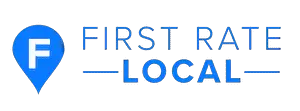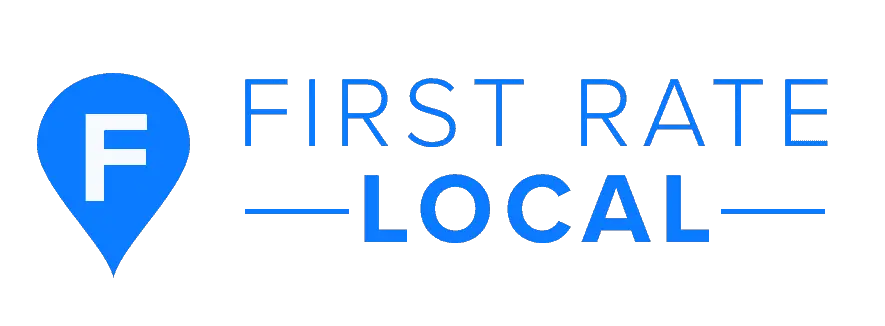A home loan is a type of loan that helps individuals and families finance the purchase of a home. A mortgage is a specific type of home loan that is secured by a mortgage note. Both home loans and mortgages are typically repaid over 15-30 years, although other repayment terms may be available in some cases. While both home loans and mortgages are typically used to finance the purchase of a home, there are some key differences between the two types of loans. One of the main differences is that a home loan does not always have to be secured by a mortgage note. Home loans can also be unsecured, meaning that they are not backed by any collateral.
There Are A Few differences between home loans and mortgages. One major difference is the interest rates that are charged. Home loans usually have lower interest rates than mortgages, since they are not backed by collateral. This means that home loans can be a good option for those who do not want to risk their home as collateral for a loan. Another key difference between home loans and mortgages is the terms of repayment. Home loans typically have shorter repayment terms than mortgages, which means that they can be paid off more quickly. However, this also means that home loans may have higher monthly payments than mortgages.

Are Mortgages An Home Loans The Same?
When deciding whether a home loan or mortgage is right for you, it is important to compare the different features of each type of loan. Be sure to consider the interest rates, repayment terms, and other factors that can impact your monthly payments. By doing so, you can make an informed decision about which type of loan is right for your needs.
Home Loans
A home loan is a type of loan that helps you finance the purchase of a house. The amount you borrow is typically based on the value of the property, and your ability to repay the loan. Home loans are available from banks, credit unions, and other financial institutions.
- If you’re thinking about buying a house, a home loan could be a good option for you.
- Home loans typically have lower interest rates than other types of loans, and they can be easier to qualify for.
- Plus, with a home loan, you can often get tax breaks that you wouldn’t get with other types of loans.
To get a home loan, you’ll typically need to have good credit and a steady income. You’ll also need to have a down payment, which is the upfront cost of the home. The size of your down payment will affect your interest rate and monthly payments.
Benefits of Home Loans
There are many benefits to taking out a home loan. Perhaps the most obvious benefit is that it can help you to purchase a property that you may not have been able to afford otherwise. A home loan can also help you to pay off your mortgage faster and free up some extra cash each month. Additionally, the interest you pay on your home loan is usually tax-deductible. This means that you can potentially save a lot of money on your taxes each year.
- Another benefit of a home loan is that it can give you some financial security.
- If you ever find yourself in a position where you can no longer make your mortgage payments, the lender may foreclose on your property.
- However, if you have a home loan, the lender cannot take your property unless you stop making payments on the loan.
- This can give you some peace of mind knowing that you will not lose your home if you should ever experience financial difficulties.
Additionally, the interest you pay on your loan may be tax-deductible. This can save you a lot of money on your taxes each year.

Mortgages
A mortgage is a loan that helps you finance the purchase of a home. When you take out a mortgage, you agree to repay the lender, with interest, over a set period. Mortgages are usually repaid over 15 or 30 years, although other terms may be available.
- The amount you borrow for your mortgage is known as the principal.
- Each month, you’ll make a payment to the lender that includes interest and a portion of the principal.
- As you pay down the principal, your equity in the home increases.
- Equity is the portion of your home’s value that you own; it’s what’s left after subtracting the amount you still owe on your mortgage.
With a fixed-rate mortgage, your interest rate and the monthly payment stay the same for the entire term of your loan. With an adjustable-rate mortgage (ARM), your interest rate and monthly payment may change over time. ARMs usually start with a lower interest rate than fixed-rate mortgages, but the rate can increase over time.
- Mortgages are just one of many ways to finance the purchase of a home.
- You may also be able to qualify for a government-backed loan, such as an FHA loan or a VA loan 0r you could use a personal loan from a lender or even pay cash for your home.
- The best option for you will depend on your financial situation and your goals.
Benefits of Mortgage
A mortgage is a loan that helps you buy a property. It is a long-term loan and it is important to think carefully before taking one out.
- A mortgage can be a good way to buy a property.
- It can help you spread the cost of buying a property over a long time.
- Mortgage can also help you get on the property ladder.
- A mortgage can also be a good investment.
- The value of your property is likely to go up over time.
- This means that, if you keep your mortgage repayments up to date, you could make a profit when you sell your property.
However, there are some risks associated with taking out a mortgage. If interest rates go up, your mortgage repayments will increase. This could make it difficult for you to keep up with your repayments.
Differences:
-Home loans are usually taken out to purchase a property, while mortgages are usually taken out to refinance an existing property.
-Home loans tend to be for shorter terms than mortgages.
-Home loans usually have lower interest rates than mortgages.
-Mortgages typically have higher interest rates than home loans.
-The equity in a property is used as collateral for a home loan, while the equity in a property is not used as collateral for a mortgage.
-Home loans are typically repaid in monthly installments, while mortgages are typically repaid in lump sum payments.
-Home loans can be prepaid without penalty, while mortgages typically cannot be prepaid without penalty.
-Home loans typically have origination fees, while mortgages typically do not have origination fees.
-Home loans can be assumable, while mortgages typically are not assumable.
-Home loans can be discharged in bankruptcy, while mortgages cannot be discharged in bankruptcy.
-Mortgages typically have higher closing costs than home loans.
-Home loans can be forgiven in certain situations, while mortgages cannot be forgiven in any situation.

Mortgage Basics
For most people, a mortgage is the largest financial obligation they will ever take on. It’s important to understand how a mortgage works before signing on the dotted line.
Interest rates:
- The interest rate on your mortgage is the cost of borrowing money from the lender. Interest rates can be fixed or adjustable.
- Fixed-rate mortgages have an interest rate that remains the same for the life of the loan, while adjustable-rate mortgages (ARMs) have an interest rate that can change over time.
Loan types:
- There are many different types of mortgages available, each with its own set of terms and conditions.
- Some common loan types include conventional loans, FHA loans, VA loans, and USDA loans.
Down payment:
- The down payment is the amount of money you will need to put down at closing to purchase your home.
- For most loans, the down payment is 20% of the purchase price of the home. However, some loan programs allow for a lower down payment, such as FHA loans, which only require a 3.5% down payment.
Pre-approval:
- Getting pre-approved for a mortgage is the first step in the home-buying process.
- It gives you an estimate of how much you can borrow and what your interest rate will be.
Closing costs:
- Closing costs are the fees associated with getting a mortgage.
- These fees can include origination fees, appraisal fees, title insurance, and more.
Home Loan Basics
The first thing you need to know about home loans is that there are two main types: fixed-rate and adjustable-rate. As the name implies, a fixed-rate loan has an interest rate that remains the same for the life of the loan, while an adjustable-rate loan has an interest rate that can change over time.
- Fixed-rate loans are typically the better choice for borrowers who plan to stay in their homes for a long time since they offer predictability and stability.
- Adjustable-rate loans, on the other hand, may start with lower interest rates than fixed-rate loans, making them more attractive to borrowers who are looking to save money in the short term.
- However, since adjustable-rate loans can change over time, they may end up costing more in the long run.
In summary, there are both benefits and disadvantages to a home loan versus a mortgage. It would be wise to talk to a financial advisor to evaluate what you can afford.
























